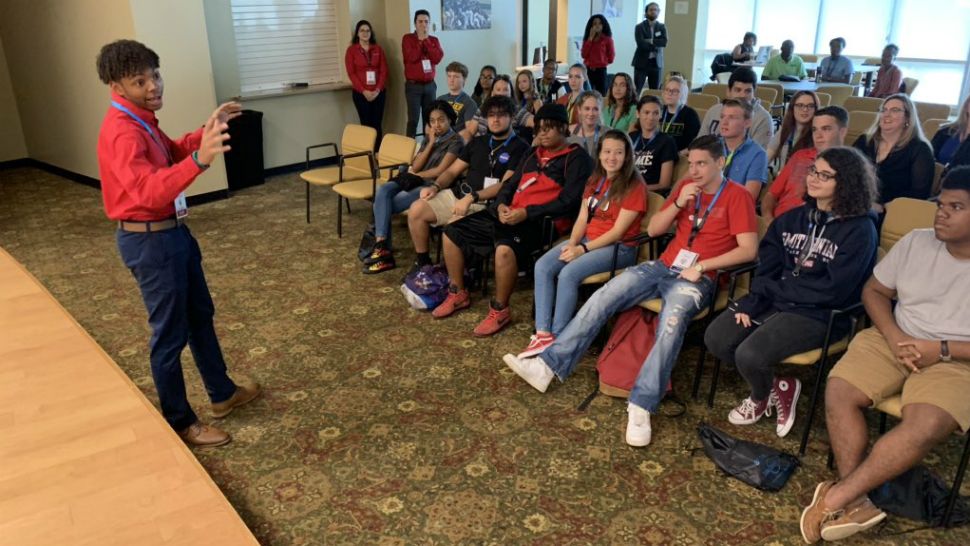HILLSBOROUGH COUNTY, Fla. — Tackling the drug epidemic will takes all types of people, professions and even ages. Earlier this year, DEA Tampa announced the DEA's 360 Strategy was going to be launched in the Bay area.
- Bay area children taken part in peer-to-peer training
- Students say they are seeing a lot of vaping in schools
- LINK: Learn about DEA's Peer-to-Peer program
- More Hillsborough County headlines
Tuesday and Wednesday, just over 50 kids came to Keiser University to participate in peer-to-peer training with Community Anti-Drug Coalitions of America (CADCA) leaders.
The kids taking the course agree that it will take people of all ages to stand up to the current drug epidemic happening in the Tampa Bay community.
“You see it on the bus, you see it outside of school, people will skip school just to go out to some park nearby and just smoke," said Julia Martinez, a high school junior.
“Outside of school, that is where you see more of like the hardcore drugs," said Aleah Yarn, also a junior.
One thing each kid said they see a lot at school is vaping.
“Even like those little jewel things, kids will do those in the bathrooms and I will see it," said Brody Gommier, a senior.
“In school I see people, like, vaping," said Da'Naiya Sailes, a senior.
“People use Jewels and they get caught smoking in the bathroom," said Kiara Moore, another high school senior.
Vaping is a big problem among teens, but they see much more than just that. Almost every kid had someone they knew affected by hard drugs, like prescription pills, heroin and opioids.
“I have had family members that struggle with drug abuse," said Yarn.
“One of my cousins had problems with it, she ended up overdosing whenever she was like eight months pregnant," said Gommier.
“Yeah, a lot of my friends actually smoke," said Martinez.
Being part of the change is not easy, but educating kids to talk to other kids, that is a strategy the DEA believes will work.
“I feel like kids listen to kids more than they do adults," said Martinez.
At this point, with such a big epidemic affecting almost everyone these kids feel they should definitely be part of the solution.
“It is a real problem and that we can deal with it, especially teenagers. We can make a change," said Gommier.
On top of this, DEA Tampa is also launching a Peer to Peer program. It is a three day training to teach parents how to help and support other parents who have addicted or recovering children. The training begins August 2nd and requires a sixth-month commitment.
If you need to speak to someone about a person you know who addicted, call this hotline: 1-855-378-4373.



